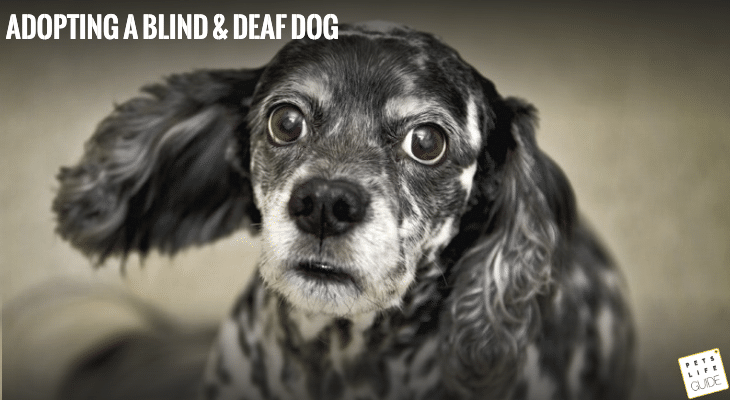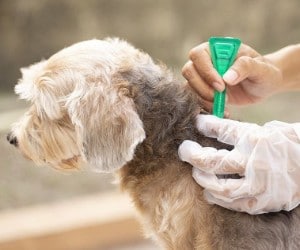Table of Contents
Tips for Ensuring Safety and Happiness of Blind & Deaf Dogs
Adopting a dog is one of the most beautiful things that can happen in your life. It can be a life-changing experience, and you can be sure that your dog will give you unconditional love and affection. But what if the dog you adopt is blind and deaf? Adopting a blind and deaf dog may seem challenging, but with the right approach, you can ensure their safety and happiness.
Living with and caring for a blind dog requires several helpful strategies. If your pet’s vision is unlikely to be restored, your vet can provide ideas to help your dog adjust to the changes and give you the necessary information to care for your dog appropriately.
In this article, we will explore some tips on how to bond with your dog, use textures to guide them, and train them with positive reinforcement.
The Importance of a Safe Space and Crates
The first step in ensuring your blind and deaf dog’s safety is to create a safe space for them. It is crucial to have a designated area where they can feel secure and avoid potential hazards. It is also important to make sure that this area is free from any sharp edges or objects that could harm your furry friend.
One way to create a safe space is to use a crate. A crate can help your dog feel secure, and it can also prevent them from wandering into dangerous areas of your home. When choosing a crate, make sure it is large enough for your dog to move around comfortably. Additionally, make sure that the crate has enough ventilation and is placed in an area where your dog can still feel included in family activities.
Bonding with Your Blind & Deaf Dog
Bonding with a blind and deaf dog requires patience, understanding, and communication. It is important to establish a bond of trust between you and your dog, and this can be achieved through gentle touch and soothing tones. Dogs rely heavily on touch and smell, so be sure to pet your dog frequently and use treats as positive reinforcement.
One way to bond with your dog is to establish a routine. Dogs thrive on routine, and a consistent schedule can help your furry friend feel secure and comfortable. You can establish a routine by feeding your dog at the same time every day, taking them for walks at the same time, and spending time with them at the same time every day.
Using Textures to Guide Your Dog
Textures can be a valuable tool for guiding your blind and deaf dog around your home. You can use different textures to help your dog navigate your home and avoid potential hazards. For example, you can use carpet runners to guide your dog from one room to another, or you can place textured mats near stairs or doorways to alert your dog to potential hazards.
Additionally, you can use scent markers to help your dog navigate your home. Scent markers can be created by using a cloth or cotton ball to collect the scent of specific areas in your home. You can then place these scent markers in areas where you want your dog to go, such as their food or water bowls.
Training your blind and deaf dog requires patience and positive reinforcement. Positive reinforcement is a training technique that involves rewarding your dog for good behavior. Rewards can include treats, praise, or playtime.
When training your dog, it is important to use consistent commands and hand signals. You can use a treat to get your dog’s attention, and then use a hand signal to indicate the desired behavior. For example, you can use a hand signal to indicate that you want your dog to come to you, and then reward them with a treat when they do.
Walking Your Blind & Deaf Dog: Tips for Safety
Walking your dog can be challenging when they are blind and deaf, but it is still essential for their physical and mental health. Use a harness instead of a collar to prevent injury to their neck, and always keep them on a leash. Consider using a longer leash to give your dog more freedom to explore, but make sure you are always in control. You can also use a vibration collar to help your dog understand when you want them to stop or turn.





Leave a Reply